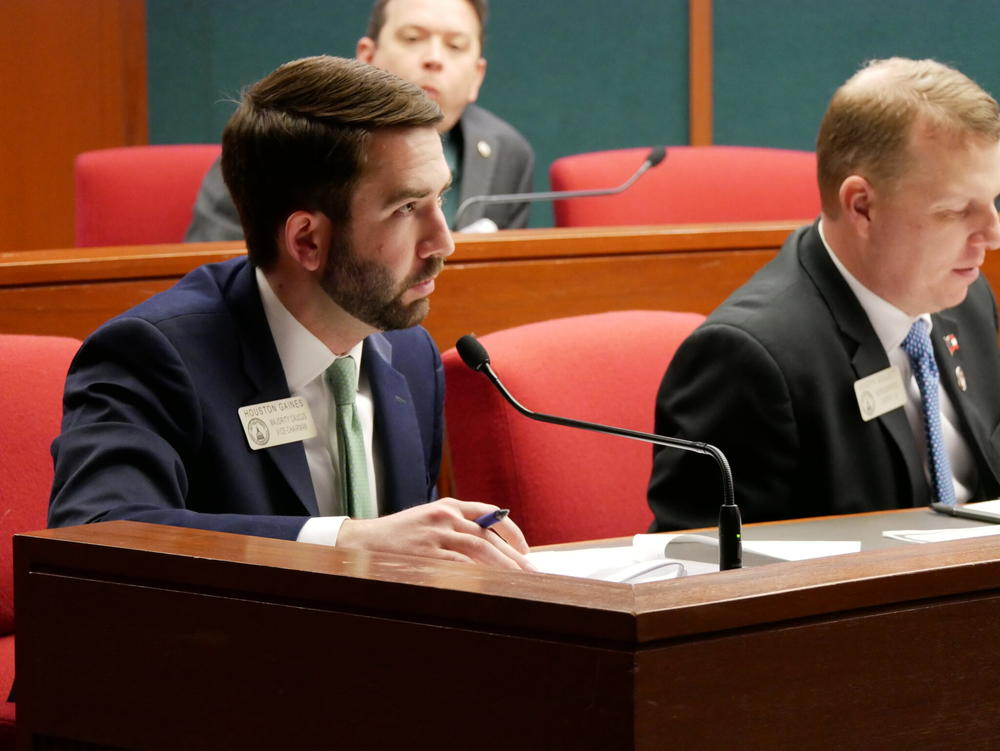
Caption
Rep. Houston Gaines, an Athens Republican, goes over changes made to a bill that alarmed First Amendment advocates when it passed the Senate early this month. The new version has been narrowed down significantly.
Credit: Jill Nolin / Georgia Recorder

